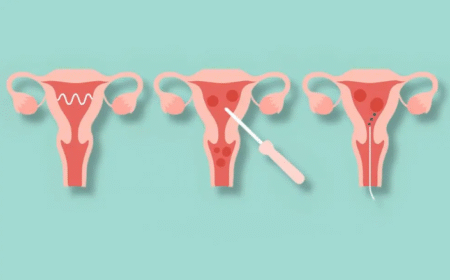Endometrial Ablation
Pooyesh Fertility Clinic
Endometrial Ablation
Endometrial ablation is a minimally invasive procedure used for women who experience very heavy menstrual bleeding and who no longer wish to become pregnant.
This technique works by destroying the endometrium (the inner lining of the uterus), thereby reducing or stopping menstrual bleeding.
Indications for Endometrial Ablation
This procedure is typically recommended in the following situations:
- Heavy menstrual bleeding that does not respond to medications
- Women who do not wish to become pregnant (endometrial ablation usually leads to infertility)
- Women who do not want or are not suitable candidates for hysterectomy (surgical removal of the uterus)
Types of Endometrial Ablation
There are several techniques available, including:
- Thermal ablation: uses heat (microwave or radiofrequency energy) to destroy the endometrium
- Cryoablation: uses extreme cold (freezing) to destroy tissue
- Balloon ablation: a balloon filled with heated fluid is placed inside the uterus to burn the endometrial lining
- Heated fluid ablation: warm saline or other heated solutions are introduced into the uterus to ablate the lining
Pre-procedure Preparation
- A pregnancy test is performed to ensure the patient is not pregnant
- The doctor may prescribe medications to thin the endometrium before the procedure
- Patients are advised to avoid sexual intercourse and tampon use prior to the procedure
How the Procedure is Performed
Endometrial ablation is usually carried out under local anesthesia or general anesthesia, most commonly with the guidance of hysteroscopy.
Post-procedure Care
- Light bleeding or watery discharge for 1–2 weeks is normal
- Cramping similar to menstrual pain may occur and can be managed with pain relievers
- Sexual intercourse should be avoided for 2–4 weeks
- Heavy lifting should be avoided for about one week
Benefits of Endometrial Ablation
- A safe and effective treatment for abnormal uterine bleeding and certain types of fibroids
- Can significantly reduce or even stop menstrual bleeding
- May also help shrink fibroids in some cases

